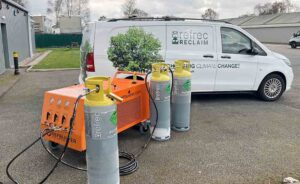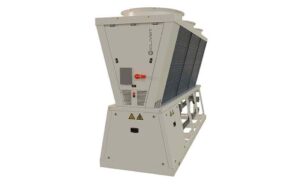New formula HTF offers better performance
15th June 2021
FRANCE: Climalife’s Greenway Neo heat transfer fluid has been reformulated and NSF HT1 registered for incidental contact with food.
Despite the reformulation, the new Greenway Neo N retains the same heat transfer efficiency as its predecessor, which has been around since 2010.
It is formulated using 1,3-propanediol, a raw material of plant origin derived from the fermentation of 99.7% purified glucose syrup, and high-performance hybrid anti-corrosion inhibitors. According to life cycle analysis (ISO 14040 standard), the production of bio-based 1,3-propanediol consumes 50% less energy and halves the CO2 in its manufacture compared to MPG.
It is also bacteriostatic according to the international standard ISO 11930, preventing the proliferation of bacteria in thermal installations.
Said to be perfectly suited to the needs of food processing applications, Greenway Neo N has a lower viscosity than MPG, and is said to offer better performance – it can be used in applications with temperatures down to -55°C, which are unattainable with MPG.
When designing a circuit, its low viscosity also allows for the selection of smaller pumps and smaller pipe diameters.
Greenway Neo Heat Pump N
Greenway Neo Heat Pump N is ideally suited for ground source heat pumps and air-to-water heat pump applications, heating, ventilation, air conditioning systems and domestic hot water production. It is biodegradable and reduces the risk of soil pollution in the event of leakage.
Greenway Neo Solar N
Formulated for flat or tubular solar thermal panels under vacuum, Greenway Neo Solar N works in primary circuits where heating systems and domestic hot water production where solar thermal panels are subjected to high temperatures.
Said to be stable up to 200°C, Climalife maintains that this solar heat transfer fluid can increase the life of the system by reducing blockage and tarring of the system, compared with MPG-based heat transfer fluids which, it says, can degrade at 130°C.







